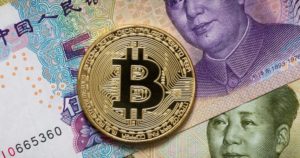
China’s state-own news agency appears to be stepping up its rhetoric on over-the-counter (OTC), crypto-to-crypto trading and overseas initial coin offerings (ICOs) that still remain active in the country, calling them an attempt to bypass existing regulation.
In a news report published Feb. 12, the Xinhua News Agency, detailed how purchasing cryptocurrency assets through OTC channel is easily available by having reporters register on exchanges such as Huobi Pro and buy bitcoin using accessible payment tools like AliPay.
As reported previously, following the ban on ICO and closure of order book trading platforms last year by the People’s Bank of China, the country’s domestic exchange platforms have shifted to OTC trading and moved the business overseas.
Yet the new report by Xinhua news agency, a ministry-level institution under the Chinese central government, arrives amid Chinese authorities have continuously signaled its intension to tighten rules to curb existing trading activities in the country.
Citing a report published by a Chinese internet finance security commission, the news agency stressed that as of November last year, 21 OTC exchanges have remained active among Chinese investors while these platforms are all located in overseas domains such as Hong Kong, Japan and the U.S.
In addition, the report also pointed out crypto-to-crypto trading platforms that are based outside mainland China but available for Chinese investors who can participate in by first purchasing tokens through OTC channels.
The news agency further alleged that all these actions are just new attempts to bypass the existing regulations and further called for tightened rules to regulate these activities.
Furthermore, ICOs that have shifted their registration overseas are also being targeted by the news report.
“Currently, some ICO projects moved overseas to continue its operation. Although they are officially established and issuing tokens overseas, their project development, key personnels and investors are all based inside mainland China,” the report reads.
Source by Wolfie Zhao
Be First to Comment